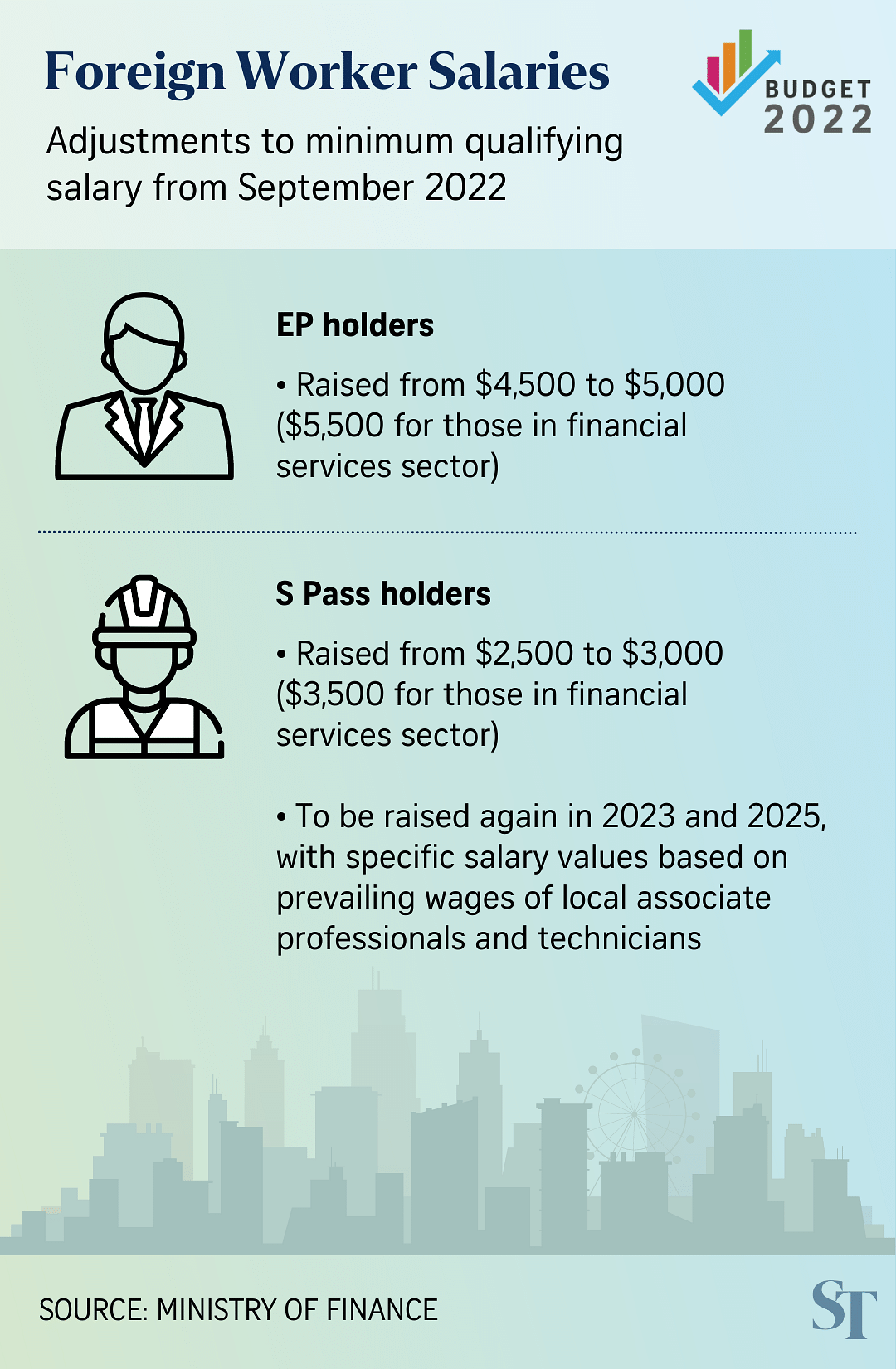SINGAPORE - The planned hikes in qualifying salaries for Employment Pass (EP) and S Pass holders - which will kick in from September - will likely translate to "forced" salary increases for the foreign workforce, stressed Ms Foo Mee Har (West Coast GRC).
"The use of salary thresholds is a blunt instrument that does not take into account specific skills requirements and gaps in the market," said Ms Foo during the debate on the Budget statement in Parliament on Monday (Feb 28).
She suggested a points system that considers a range of non-salary factors to make the work pass system more transparent and economical.
With a tight labour market, the higher salary cut-offs will hurt employers, she added. "The higher work pass thresholds have triggered international firms to review the sustainability of their operations in Singapore."
The latest changes will see the qualifying salaries for new EP and S Pass applicants go up by $500 to $5,000 and $3,000 respectively from September.
In the financial services sector - which has higher salary norms - the bar will be raised from $5,000 to $5,500 for new EP applicants. A salary threshold of $3,500 will be introduced for incoming S Pass holders in the sector.
For older EP and S Pass applicants, their higher salary cut-offs will be raised in tandem. For renewals, the changes will apply a year later - from September 2023.
Mr Saktiandi Supaat (Bishan-Toa Payoh GRC) welcomed the upward adjustments to the qualifying salaries. "Theoretically, this means that jobs which previously paid between the old and new salary thresholds - which could have gone to a foreign employee previously - will now have to filled by a local," he added.
But Mr Saktiandi asked if the Government would consider further differentiation of sectors beyond just carving out the financial services sector.
"Different sectors pay vastly different salary scales, and the point at which they require foreign labour or expertise may vary significantly," he added.
"So having a single uniform qualifying salary may also penalise sectors where Singaporeans are less interested in those jobs, while those employers cannot get pass holders to do the jobs."
Non-Constituency MP Leong Mun Wai said the planned increase for EP qualifying salary is "too little to be effective". Instead, he reiterated an earlier call for a standard monthly levy of $1,200 to be imposed on each EP holder to "ensure fair competition".
Meanwhile, Ms Poh Li San (Sembawang GRC) said Singapore has to find a way to wean itself off the heavy reliance on foreign labour, adding that "the easy availability of foreign workers has depressed our blue-collar workers' wages and it will continue to do so".
"To add, these foreign workers are willing to perform labour-intensive jobs which Singaporeans tend to shun," she noted.
Nominated MP Janet Ang highlighted that many companies in some sectors, such as construction and food and beverage, have participated in recruitment fairs over the past two years, but they have had little success in getting Singaporeans to fill their vacancies.
She hopes the Government "can look in sectorial differentiation when implementing the changes to the foreign worker policies, at least for the foreseeable short to medium term".
Mr Edward Chia (Holland-Bukit Timah GRC) also said some employers have shared with him their difficulties in hiring Singaporeans, even when they are eager to do so.
The local workforce is anticipated to shrink in the coming years, a consequence of the country's ageing population and low birth rates, he pointed out.
"While I agree that we must provide gainful employment for Singaporeans and strengthen the complementary factor with the foreign workforce, we may soon reach or already have reached a point where there is simply not enough of us."



